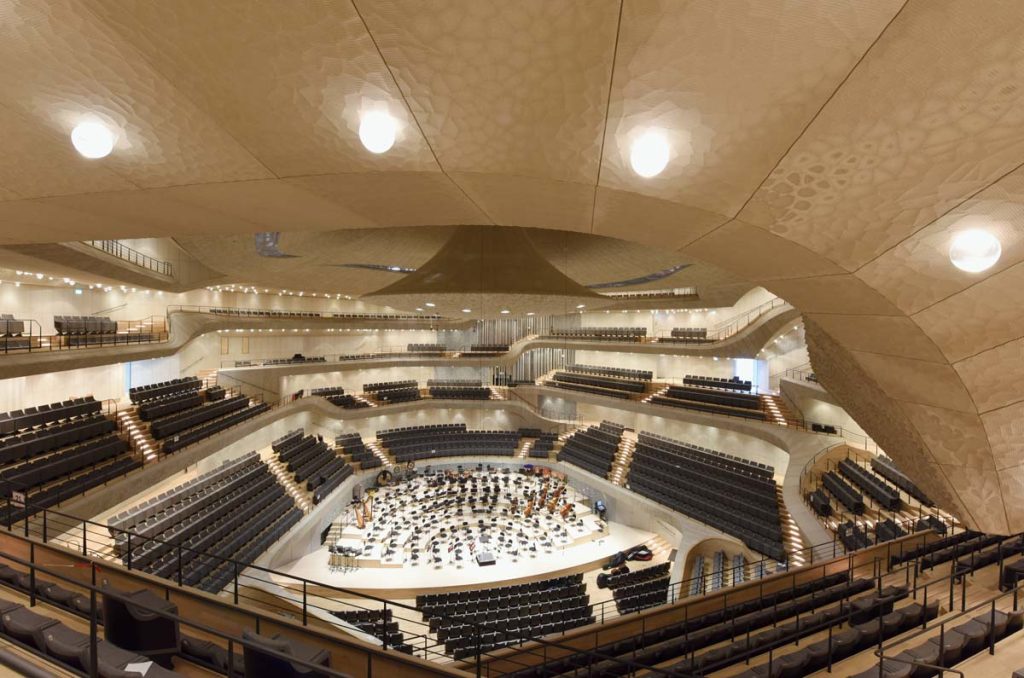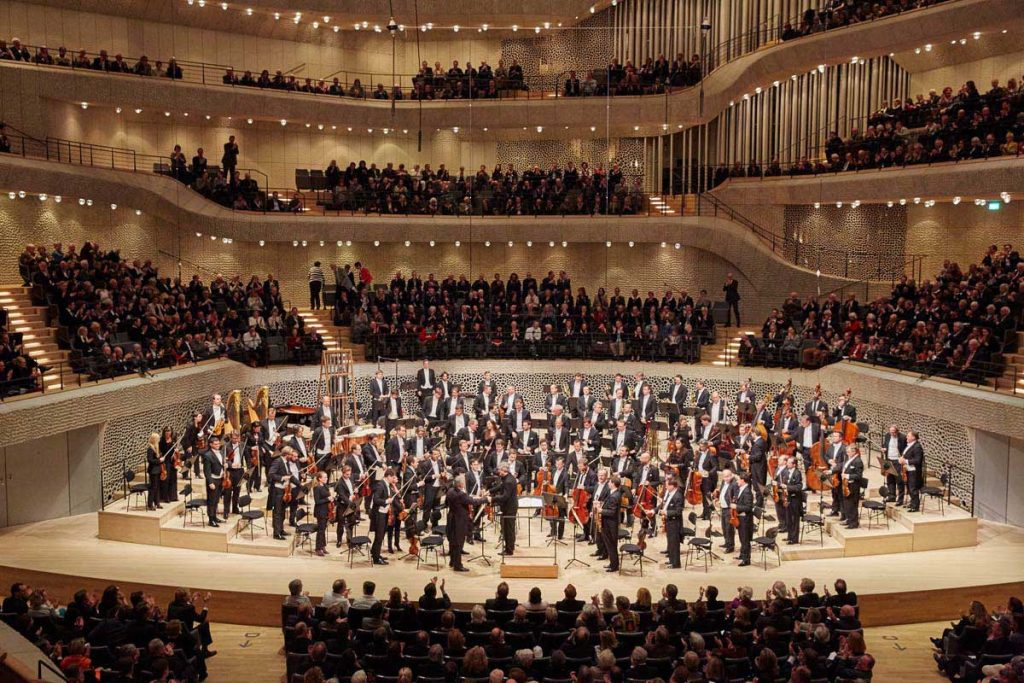Professional musician Stefan Gawlick travels the world and knows almost every major concert hall around the globe. In this series, he reports on the acoustics and other characteristics of famous venues both in the auditorium and on stage.
Imagine you’re designing a new car. You spend years running computer simulations, construct individual component groups and put them through their paces on test benches, inspect materials, and so on and so forth. After a few years, you’ve got to where you need to be: All the available components at the final design stage are pieced together to form the first drivable prototype.
What would be your next move? It’s sure to entail completing numerous test drives, collecting measured values, making some changes, performing some major or small adjustments, carrying out the last test runs and then, and only then, unveiling the vehicle to the public. It’s only at this point you’d let others drive it and the press get their hands on it.
A concert hall, which is at least as complex as a modern car, works a bit differently — especially if public pressure has ballooned out of all proportion due to the lengthy construction time and huge costs. In this case, the prototype’s first test drive would be the actual public unveiling. I don’t even want to think about how nerve-racking that must have been for the constructors.
The problem is you can’t fine-tune a hall without doing it publicly as each hall sounds different with and without an audience in it. It also sounds different if the orchestra is large or small or if a string quartet or just one soloist is on stage. You need a broad range of regular concert performances to really get to know the hall properly — and then make the acoustical fine-tuning adjustments. This is standard. All large modern concert halls have had to go through a similar adjustment period, whether it’s the KKL (Culture and Convention Center, Lucerne) or the Gasteig. The Berliner Philharmonie also wasn’t quite “ready to go” right after its renovation in the 1990s.
That’s why we should all take a step back and demonstrate a bit of discretion when considering comments about the Elbphilharmonie’s acoustics. I assume this breathtakingly gorgeous concert hall will sound significantly different again in one or two years’ time.
And that also applies to recordings made here, too, which wouldn’t exactly be very clever at this point. In any case, orchestras and sound engineers need to first get to know the concert hall. Recordings released so far sound rather flat, unbalanced and like they have poorly integrated supports. So we should give it all some time.
Unfortunately, I’ve not yet held a concert in the Elbphilharmonie, but I have had some rehearsals here. And I’ve heard rehearsals as well — when the hall was empty. This, of course, only tells half the story. I will actually play my first concerts here during the coming year, and then I’ll have much more to say. At the moment, however, I can only share my first impressions. The initial acoustic impression on the stage and in the hall is one of rare transparency and resolution. For those on stage that’s good because you can really hear all your colleagues, which enables you to easily obtain all the information relevant to your musical interaction — you do, however, also unfortunately get the less important information from within the hall itself. If people blow their noses in the ninth row, it almost sounds like they’re right next to you.
You get the same experience within the hall: In a good seat (I haven’t wandered around the whole hall), you can really hear everything.
For complex, modern music, the sound is spectacular as not one single tiny detail gets lost in the commotion. On the flip side, however, the orchestra struggles to combine 12 to 20 first violins to form a cohesive whole. It’s also fascinating to see how much volume the hall can tolerate: Even at high levels, things don’t get “dense,” only louder; yet everything remains transparent.
I’m excited about what will happen in the Elbphilharmonie in the future — how he acoustic specialists will successfully address the hall’s weaknesses without jeopardizing any of its phenomenal strengths. But it is already one of the most exciting and stunning concert halls in the world.
Hamburg Elbphilharmonie
Platz der Deutschen Einheit 4
20457 Hamburg
Germany




